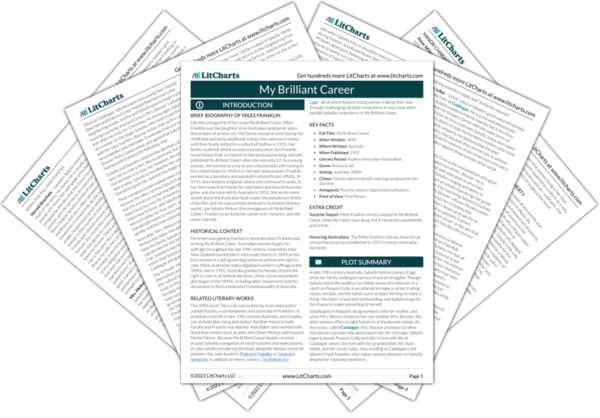Sybylla often downplays her fascination with the world around her in favor of complaining about farm work or worrying about her womanhood. However, this section makes clear that, despite her cynicism and self-interest, Sybylla is deeply intrigued by the world outside herself. She describes the world as writing a tale on her heart. This locates that tale right next to her personal ambitions, since she immediately goes on to describe her aspirations of writing as living in a piece of her heart. Positioning these two feelings so close together emphasizes the significance of both.
